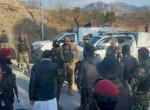The Pakistan High Commissioner (HC) should not have met the Hurriyat leaders when he was asked by the Indian Foreign Secretary not to do so. Diplomatic norms obliged him to take this request communicated at such high level seriously and failure to do so, he knew, would have repercussions. He chose to snub the government and left our political leadership no choice but to cancel the Foreign Secretary (FS) level talks fixed for August 25. After this effrontery on the HC’s part-obviously on his government’s instructions- we would have opened ourselves to ridicule if we had gone ahead with these talks. Modi’s image of a tough “India-First” leader would have taken a battering, besides seriously weakening the Indian hand in the talks ahead. If India had blinked in these circumstances, the Pakistanis would have been encouraged to raise the ante in other areas of negotiation.
As it is, the Pakistan government chose to defy the government further by instructing its HC to meet the Hurriyat leaders the next day for a second round. Not content with that, the HC decided to speak to the press to justify his decision and also mock us by suggesting that these talks with anti-national elements in Kashmir were intended to promote “peace”. He referred to the Hurriyat leaders as stakeholders in the peace process and therefore eligible for Pakistan’s special attention, whereas we rightly consider these separatists adamantly disruptive elements.
It is unfortunate that our mainstream English language press and individual commentators wedded to the idea of a dialogue with Pakistan unconditionally have been critical of the government’s decision to cancel the FS level talks, describing it as an over-reaction on a trivial issue and insufficiently thought through. They seem to think that we have painted ourselves in a corner on the assumption that India will, sooner or later, have to find a way to resume the dialogue with Pakistan and will now find it more difficult to do so. They have also made the truly bizarre argument that by seeking to stop the HC’s meeting with the Hurriyat, we were challenging Pakistan’s sovereignty.
In a democracy all kinds of opinions get expressed, but the freelancers of opinion in our society seem sometimes to be confused about which side of the border they reside. It is also unfortunate that their bile against Modi and the BJP corrodes their judgment on the issues at stake in the latest India-Pakistan row.
The argument of the Pakistanis and the anti-Modi bilious lot in India that as these meetings between the Pakistani leaders and the Hurriyat have continued for years, they should not have been opposed to the point of cancelling the FS level talks. Now, even if they have been tolerated in the past for reasons that are difficult to fathom, there is no accord between India and Pakistan on this arrangement that we have violated. The fact that these meeting have taken place in the past does not give Pakistan a lien on such practice. If this logic were to be accepted, then Pakistan can argue that as Pakistan has planned and abetted terrorist attacks against India for decades and India has not gone to war with Pakistan over this, any toughening of India’s policy away from its past tolerance of such hostile acts would not be justified and would amount to India rejecting dialogue, not thinking things through and painting itself in a corner.
Pakistan regularly raises the Kashmir issue in the UNGA and the country celebrates Kashmir Day every year when provocative speeches are made. Should India decide, for instance, to lambast Pakistan in the UNGA on its record of treating its minorities and the sectarian conflict in the country and slam it for its links with terror, Pakistan and its friends in India would say that our policy shift was an uncalled for vitiation of the atmosphere of India-Pakistan relations.
As for the sovereignty argument, is it the case that we do not have the sovereign right to control who our adversaries meet on our own soil? Does another sovereign country have the right to supersede our sovereignty over our own territory? It is surprising that the Pakistani spokesperson should have used the sovereignty argument in her reaction. Evidently she meant that Pakistan as a sovereign country cannot be told what to do. This would mean logically Pakistan has the sovereign right to launch terrorist attacks against us, send in infiltrators in J&K and refuse any accountability as a sovereign country for the Mumbai carnage. Naturally, sovereignty for Pakistan over-rides international law, norms of inter-state relations and civilised behaviour.
Actually, Nawaz Sharif has, from the day he took over, been negative in his positions on India, whatever is said about his desire to normalise ties with us. It is true that during his election campaign, he expressed such sentiments and he accepted Modi’s invitation to his swearing-in. But we need to assess his actions coldly, without relying on his words alone. While professing friendly sentiments, he has repeatedly expressed his intention to agitate the Kashmir issue; he has on several occasions called for its resolution on the basis of self-determination and UN resolutions, thus violating the Simla Agreement; he has tried to involve third parties such as the US and the UK in resolving the problem, again in violation of the Simla Agreement; he has not moved on the trial of those responsible for the Mumbai terrorist attack; he has given Hafiz Saeed more political visibility and allowed him to carry on his venomous campaign against India knowing Indian sensitivities; he has delayed the grant of MFN status to India even under the camouflaged appellation of “Non Discriminatory Market Access”. If on such substantive issues, Pakistan can change its position or prevaricate, then why cannot India alter its position on the direct contacts thus far tolerated between Pakistan and the separatists on Indian soil, in India’s capital city to boot? Why do the supporters in India of amity with Pakistan take no cognisance of latter’s provocations, unhelpful positions and insensitivity to Indian concerns, and are ready to berate the government if it decides to react.
If the Hurriyat does not count for much, then why is it so important for Pakistan to maintain direct contact with it? Pakistan should have ended its contacts with the separatists long ago if they were so fruitless. The reality is that such contacts carry the implication that J&K is not India’s internal affair, that Pakistan has a legitimate role in Kashmir, that those in Kashmir who challenge India’s sovereignty over J&K can be direct interlocutors of the country that also rejects our sovereignty over the state, that Pakistan, in fact, enjoys extra-territorial rights in our part of Kashmir. We can, of course, ignore these implications, and previous governments in India have inexplicably done so, but why criticise the Modi government if it does a necessary course correction? This is not a trivial issue as some Modi-baiters in India would have us believe.
It is not clear why it is felt by some that we have painted ourselves in a corner by cancelling FS level talks. This suggests that we need dialogue more than Pakistan does, that Pakistan can do without a dialogue and we cannot, and that dialogue is not a favour that India does to Pakistan. This implies that we have no cards to play except to talk to Pakistan and that Pakistan has all the cards and can wait for India to return to a dialogue mode with it. In other words, Pakistan has the upper hand over us.
Why there is such defeatist thinking is puzzling, especially as Pakistan is being ripped apart internally with terrorism and sectarian strife and is in dire economic straits. Whatever there is of Pakistani democracy is being hollowed out currently by the double agitation in Islamabad in which we can see the hand of the military. Pakistan’s stock has dwindled dramatically internationally because of its terrorist affiliations, though it continues to have benefactors in China, Saudi Arabia and even the US despite all the problems that Pakistan has caused it in Afghanistan. India, on the other hand, is on a different trajectory altogether, steadily moving towards the big power status economically and otherwise, despite the current slowdown. India is in a different league altogether and does not need the support of Pakistan to realise its ambitions or its destiny.
The critics of the Modi government’s action have close connections with the civil society in Pakistan. Many of their Pakistani interlocutors in the think tank circuit come across as well-meaning individuals, articulate and plausible. Many may be sincere, others have guile. That such elements exist in Pakistan is no reason for us to shape our policies towards that country based on their preferences or exhortations. The civil society in Pakistan is not in a position to change Pakistan’s policies towards us. Their objective is to persuade us to make the kind of concessions that would satisfy the “deep state” in Pakistan, in the expectation that Pakistan as a result will become more liberal and a more congenial place for these more open-minded people to live in. In other words, they seek an answer to Pakistan’s self-created problems partially with India’s help, all the while being in no position to alter Pakistan’s hostile policies towards us. To think that by strengthening these elements we will be able to secure our interests better is to cling to illusions. Even these more palatable Pakistanis share the entrenched ideas of the Pakistani establishment on Kashmir, accusations of terrorism by India and water issues.
All this suggests that we can actually turn our backs on Pakistan, neither be friendly or hostile towards it, engage it to the extent it wants and leave to it the initiative to reach out to us in a constructive way. So long as the Pakistani agenda of confronting India remains unchanged, its Kashmir obsession perdures, the revanchist sentiments of its armed forces endure, its policy of preventing India’s westward connectivity persists, India has every reason to look increasingly eastwards and strengthen links with BIMSTEC, ASEAN, Japan and Korea, which are areas of barrier free expansion for India, with no problem of territorial disputes, terrorism, religious antipathy and underdeveloped economic opportunities acting as obstacles.
Published Date: 26th August 2014, Image source: http://www.greaterkashmir.com
(Disclaimer: The views and opinions expressed in this article are those of the author and do not necessarily reflect the official policy or position of the Vivekananda International Foundation)









Post new comment